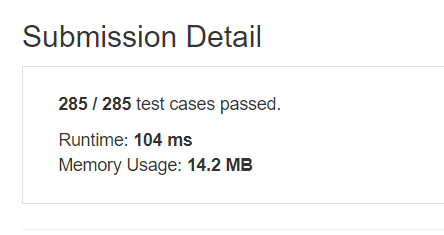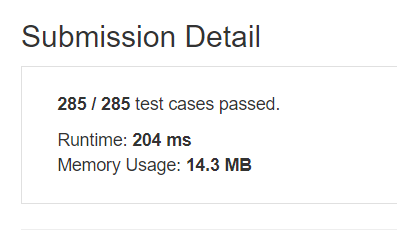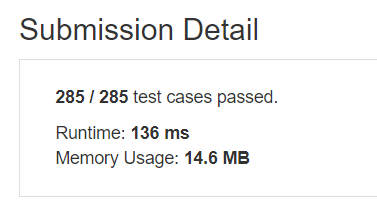Sort array by Parity
[Leetcode][Arrays]
Problem Statement
Given an array A of non-negative integers, return an array consisting of all the even elements of A, followed by all the odd elements of A.
You may return any answer array that satisfies this condition. URL
Example 1:
Input: [3,1,2,4]
Output: [2,4,3,1]
The outputs [4,2,3,1], [2,4,1,3], and [4,2,1,3] would also be accepted.Note:
- 1 <= A.length <= 5000
- 0 <= A[i] <= 5000
#collapse-hide
from typing import List
class Solution:
def sortArrayByParity(self, A: List[int]) -> List[int]:
return [i for i in A if i%2 == 0] + [i for i in A if i%2 != 0]
sol = Solution()
sol.sortArrayByParity([3,1,2,4])
Worst case performance in Time: $O(2n)$
#collapse-hide
from typing import List
class Solution:
def sortArrayByParity(self, A: List[int]) -> List[int]:
if len(A) == 0:
return []
if len(A) == 1:
return [A[0]]
result = [0]*len(A)
i = 0
j = len(A)-1
for num in A:
if num % 2 == 0:
result[i] = num
i += 1
else:
result[j] = num
j -= 1
return A
sol = Solution()
sol.sortArrayByParity([3,1,2,4])
Worst case performance in Space: $O(n)$
#collapse-hide
class Solution:
def sortArrayByParity(self, A: List[int]) -> List[int]:
i = 0
j = len(A)-1
while(i<j):
if A[i]%2 != 0:
A[i], A[j] = A[j], A[i]
j -= 1
else:
i += 1
return A
sol = Solution()
sol.sortArrayByParity([3,1,2,4])
Worst case performance in Time: $O(n)$
Worst case performance in Space: $O(1)$


